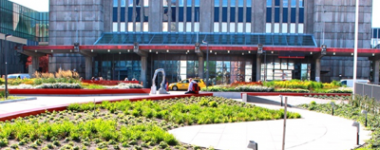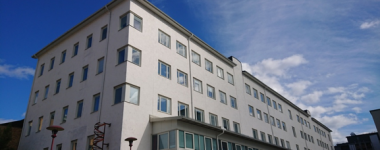AP101
ALS is a nervous system disease that weakens muscles and impacts physical function. There are two types of ALS: sporadic ALS is the most common type and means it happens sometimes without a clear cause. Familial ALS runs in families and it is caused by changes to a certain gene, e.g. superoxide dismutase 1 or SOD1. AL-S Pharma is developing a new study drug, AP101, to treat ALS by reducing affected SOD1.
Study design
This study includes 2 parts: a double-blind phase (where neither you nor your doctor know that you receive medication or placebo) and an open label extension phase (OLE, where you receive medication). The purpose of the double-blind phase is to compare the effects of the research medicine, AP-101, with placebo. A placebo looks like the research medicine but does not contain any active medicine. Researchers use a placebo to see if a research medicine works better or is safer than not taking anything at all.
If you agree to take part in the double-blind phase of the study, you will be assigned randomly (by chance, like flipping a coin) to receive either the research medicine, AP-101, or placebo. You will have a 66% (2 in 3) chance of receiving AP-101 and a 33% (1 in 3) chance of receiving placebo. Both AP-101 and placebo will be given to you as intravenous injections (also called “infusions”; this is a slow injection into a vein in your arm).
If you are assigned to AP-101 you will receive a first dose of 500 mg on day 1, and on day 2 a dose of 2500 mg of AP-101. After day 2 you will receive a 2500 mg dose of AP-101 every 3 weeks over a treatment period of 6 months in total. If you are assigned to placebo you will receive the placebo infusions instead of AP-101 infusions. Each infusion will last between 1 and 2 hours. You will be asked to stay at the research site for up to 6 hours after the infusion is complete to monitor your health.
In total, your participation in the trial will last for about 11 months for the double-blind phase. You will need to visit the research site about 15 times during the study. You will also have a telephone study visit.
If you are currently receiving medication for ALS (riluzole or edaravone) you can continue taking it in the same dose throughout the study. However, starting
or modifying doses of riluzole or edaravone are not allowed during the study.
If you complete the treatment period for this double-blind phase you may be able to continue receiving the study medicine by taking part in the separate OLE phase in which all participants will receive AP-101 (there will be no placebo group).
Can I participate in the study?
The main criteria to participate in this study are:
- You have familial ALS caused by a SOD1 gene mutation
- Your symptoms were initially detected within the last two years
Note: This list is not exhaustive, but these are the main criteria.
Registration and more information
If you are interested in participating in the AP101-02 study and fit the above profile, please contact one of the participating tricals centres below (contact details can be found by clicking on ‘read more’). They can provide you with more information and answer any questions you may have. If you experience difficulty contacting a centre, you may reach out directly to the TRICALS operational team at info@tricals.org for support in this process. More information about the study can be found at clinicaltrials.gov
Participating TRICALS centres
Please note that it is also possible to participate in some of these centres if you are resident in another country. Travel and accommodation costs may be reimbursed.


